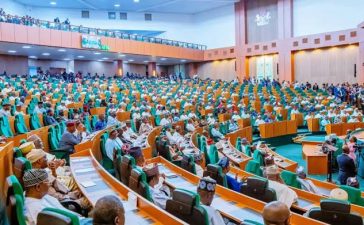Nigerian deposit money banks accessed more than N9 trillion to fund their operations as liquidity pressures intensified last week, according to recent financial reports. The shortage of liquidity has been attributed to a series of significant outflows, compounded by limited inflows, leaving the financial system strained.
The liquidity crunch began with a massive open market operation (OMO) bills auction earlier in March and continued with Treasury bills offers, which led to a gradual thinning of available funds in the market. As a result, money market rates have remained elevated, and the banking sector experienced a substantial deficit, which reached about N2 trillion by Friday.
This shortage has disrupted market dynamics, as cash-rich banks have been forced to demand higher rates on free funds. Consequently, the Nigerian interbank borrowing rate saw a slight increase of 0.07 percentage points, closing at 32.90%, highlighting the ongoing liquidity strain.
Although there was a slight improvement in liquidity balance at the beginning of the week, the situation worsened as the week progressed, with the deficit in the financial system driving interbank rates higher. The prolonged liquidity shortage has left the financial system on edge, with banks struggling to manage the high demand for funds.







